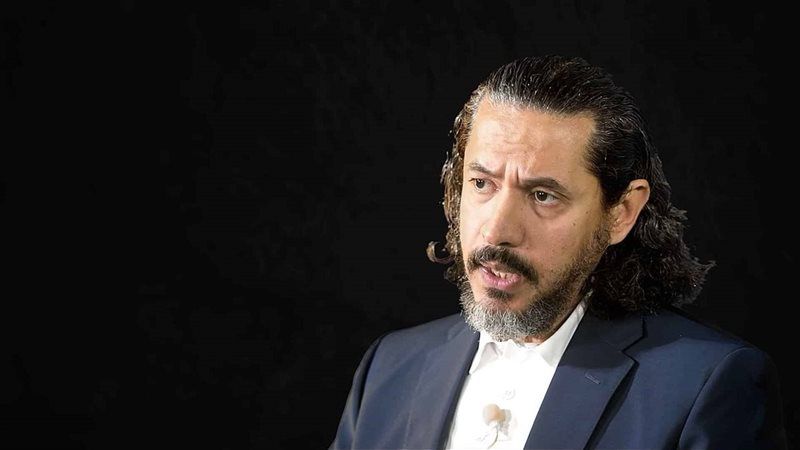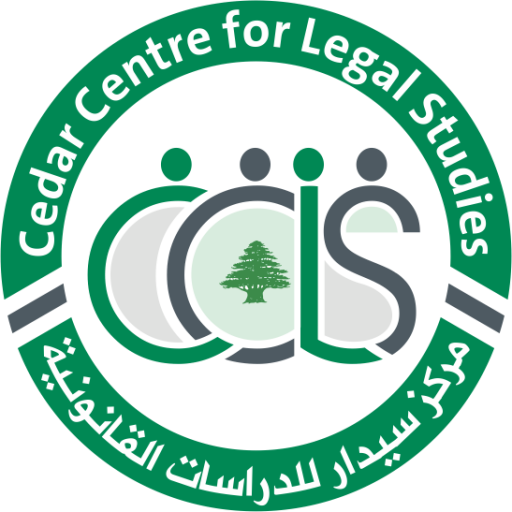Cedar Centre For Legal Studies
Case Title
Arrest and Risk of Forced Extradition of Poet Abdulrahman Al-Qaradawi
04/01/2025

Published: 04 January 2025
Updated: 14 January 2025
Introduction:
On 28 December 2024, poet Mr. ABDURRAHMAN KARADAVI known as “Abdulrahman Al-Qaradawi” was arrested in Lebanon upon his return from Syria based on a warrant issued by the Arab Interior Ministers Council. He was accused of politically motivated charges in Egypt, such as incitement to destabilize the state and spreading false news, following requests for his arrest from Egyptian and UAE authorities. These accusations relate to his opposition to the Egyptian regime, his support for opposition movements, and his publication of a video filmed at the Umayyad Mosque in Syria. This case has attracted significant media and human rights attention, raising numerous legal issues concerning freedom of expression, political rights, and adherence to international agreements, particularly those prohibiting the extradition of political dissidents to countries where they might face torture.
Abdulrahman Youssef Al-Qaradawi is a poet and intellectual born in Qatar in 1970, holding Turkish citizenship. He is the son of Sheikh Yusuf Al-Qaradawi. A graduate of Cairo University with a degree in Arabic literature, he visited Syria in 2011 to support the Syrian people’s demands for freedom and democracy. Later, he criticized Bashar Al-Assad’s regime as the conflict escalated. Known for his distinctive poetic style, Al-Qaradawi has been vocal about issues affecting the Arab and Islamic worlds, such as Palestine and human rights, expressing the concerns of youth and freedom in his literary works.
Politically motivated rulings against him include a three-year prison sentence for spreading false news, part of a broader campaign of oppression targeting dissidents through security harassment and smear campaigns.
Timeline of Events:
- 28 December 2024: Upon his return from Syria, Abdulrahman Al-Qaradawi was arested by the Lebanese General Security based on a warrant issued by the Arab Interior Ministers Council.
- 29 December 2024: The Legal Program Director at Cedar Centre, lawyer Mohamad Sablouh, made a televised appeal to Lebanese authorities, demanding that Al-Qaradawi be allowed to communicate with his family to ensure his well-being. He also urged authorities not to violate any legal protections regarding Al-Qaradawi’s rights.
- 30 December 2024: Al-Qaradawi was interrogated by a Lebanese officer for three hours. Two files were reviewed during the interrogation:
- A 2017 in absentia verdict in Egypt sentencing him for spreading false news.
- A request from the UAE based on a video he filmed at the Umayyad Mosque in Syria.
On the same day, he met his lawyer, Mohamad Sablouh, who confirmed that the interrogation was conducted by a Lebanese officer only. The questioning by the Lebanese Prosecutor-General was postponed until an official extradition request was received from Egyptian authorities. The file was referred to the Central Investigation Department for further examination.
- 03 January 2025: Al-Qaradawi was interrogated by the Lebanese Prosecutor-General in the presence of Mohamad Sablouh regarding the UAE’s extradition request. Lebanese media reported afterward that Judge Mahmoud Makkiya, Secretary-General of the Lebanese Cabinet, had received a judicial report on the UAE’s extradition request. The case is set to be reviewed at a Cabinet meeting scheduled for Tuesday on 07 January 2025. Media sources indicated that the Cabinet might approve extradition to the UAE, while the Egyptian request remained under investigation.
- 03 January 2025: Lawyer Mohamad Sablouh submitted a memorandum to the Prosecutor-General of the Cassation Court, urging the recommendation to the Lebanese Cabinet to reject the extradition requests to Egypt and the UAE. He cited Article 4 of the Arab Convention on the Extradition of Offenders, Article 26 of the bilateral agreement between Lebanon and Egypt, and Article 3 of the Convention against Torture, emphasizing the need to uphold international and regional treaties and protect freedom of expression.
- 03 January 2025: Cedar Centre for Legal Studies submitted an urgent appeal to the UN Working Group on Arbitrary Detention and a copy to the Special Rapporteur on Torture, requesting immediate intervention to secure Al-Qaradawi’s release, urging Lebanon to reject extradition requests, and ensuring compliance with the Convention against Torture to prevent forced repatriation to countries where he risks torture or inhumane treatment.
- 06 January 2025: Committee for Justice with Cedar Centre for Legal Studies submitted jointly an urgent appeal to the Special Rapporteur on Torture and a copy to the Special Rapporteur on Freedom of Expression urging them to prevent the deportation of Mr. Al-Qaradawi to Egypt or the UAE, where he risks ill-treatment, torture, and enforced disappearance.
- 07 January 2025: The Lebanese Government decided to deport Mr. Al-Qaradawi to UAE, in clear violation of the human rights conventions ratified by Lebanon.
- 08 January 2025 (Morning): Head of Legal Support Program Lawyer Mohamad Sablouh appealed the deportation decision to the State Council, Lebanon’s highest administrative court.
- 08 January 2025 (Later): Despite the appeal and the press release issued by a group of independent human rights experts, the government proceeded with the deportation, and Mr. Al-Qaradawi was deported to the UAE.
14 January 2025: MENA Rights Group, Cedar Centre for Legal Studies, and the Emirates Detainees Advocacy Center submitted a joint urgent appeal to the Working Group on Enforced or Involuntary Disappearances regarding the enforced disappearance of Mr. Al-Qaradawi. His extradition was carried out by RoyalJet, a charter airline based in Abu Dhabi, UAE, at the request of Emirati authorities.
Since 14 January 2025: Mr. Al-Qaradawi’s family and Lebanese lawyer have received no information about his whereabouts. Despite the Emirati authorities acknowledging his detention, he remains held incommunicado.
Legal Violations:
The detention of Abdulrahman Youssef Al-Qaradawi highlights several human rights and legal violations:
- Violation of Freedom of Expression: The charges against Al-Qaradawi are part of a politically motivated campaign targeting opponents of the regimes in Egypt and the UAE. This violates the right to freedom of belief, opinion, expression, and peaceful assembly guaranteed under Articles 18, 19, and 20 of the Universal Declaration of Human Rights, Articles 18, 19, 21, and 22 of the International Covenant on Civil and Political Rights, and Articles 24 and 32 of the Arab Charter on Human Rights.
- Article 41 of the Riyadh Arab Judicial Cooperation Convention: This article excludes politically motivated crimes from judicial cooperation, rendering Al-Qaradawi’s extradition requests unlawful under this agreement.
- Article 4 of the Arab Convention on the Extradition of Offenders: This article prohibits extradition requests based on politically motivated charges, undermining the legitimacy of the requests from Egypt and the UAE.
- Article 34 of the Lebanese Penal Code: This article prohibits the extradition of individuals accused of politically motivated crimes, reinforcing Lebanon’s obligation to reject these requests.
- Article 3 of the Convention against Torture: This article prohibits the extradition of any individual to a country where they are likely to face torture or cruel treatment. Given Egypt’s and the UAE’s human rights records, extradition poses a serious risk to Al-Qaradawi’s life.
- Exploitation of International Security Agreements: The detention of Al-Qaradawi represents an unlawful misuse of international security agreements to target political opponents. This highlights the use of security cooperation as a tool for repressing freedoms and restricting expression.
- As a UN Precedent: During its December 2024 review of Jordan, the UN Committee against Torture urged the State Party to:
(a) To ensure that the principle of non-refoulement is strictly respected in practice;
(b) To ensure that deportation decisions, including those taken in response to requests from the Council of Arab Ministers of the Interior, are subject to an independent judicial review procedure that allows the affected individual to challenge the decision before an impartial court;
Conclusion:
The case of Abdulrahman Youssef Al-Qaradawi’s detention in Lebanon is both sensitive and complex, raising numerous legal and political concerns. The violations he has faced highlight a broader trend of political escalation in the region, where judicial systems are being used as tools for political retaliation. The case also raises significant questions about Lebanon’s commitment to international agreements and respect for human rights, particularly regarding the extradition of political dissidents to countries where their safety is at risk.
The legal procedures in this case raise substantial concerns. Human rights organizations continue to press Lebanon to uphold basic rights and refrain from extraditing Al-Qaradawi to countries where his life could be in danger. Ultimately, Lebanese authorities must adhere to international treaties prohibiting the extradition of individuals to countries where they may face torture. These treaties include the Convention against Torture and the International Covenant on Civil and Political Rights. Therefore, Lebanon can avoid extraditing Al-Qaradawi to Egypt or the UAE on the grounds that there is a real high risk of torture or political persecution.
In light of Article 14 of the Universal Declaration of Human Rights, which guarantees individuals the right to seek asylum in other countries if they face persecution in their home country, it is notable that Al-Qaradawi holds Turkish citizenship. Turkey has requested his extradition as an alternative to sending him to Egypt or the UAE. It is worth noting that extraditing him to Turkey could be a safer option, as he would not face the same risks there as he would in Egypt.
